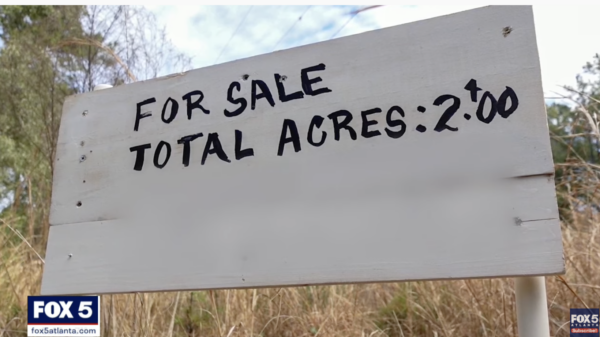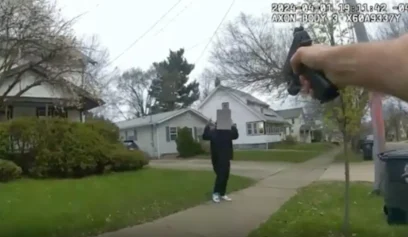Black residents of a barrier island near Savannah are claiming victory after winning a racial discrimination lawsuit that would allow them to secure land and have a better quality of life in the community their enslaved ancestors built.
The Hog Hammock on Sapelo Island was a settlement town for the Geechee people, who were trafficked to the U.S. from West Africa to work on plantations. About 500 Black settlers were reportedly on the island in the early 1900s. However, the island owner’s consolidated the land between the 1930s and 1950s, displacing 14 of the 15 settlements. Since then, Geechees on the island said they’ve been pushed out through high property taxes and a lack of resources.
JR Grovner, one of the about 40 people left in Hog Hammock, believes all of that could change with a $2 million settlement McIntosh County agreed to last month. Some plaintiffs have died, and reports show 19 complaints were dismissed because the claimants could not prove they owned property. Some of it was passed down from generation to generation. Just 28 of Hog Hammock residents were born and raised on the land.

Grovner said Geechee descendants used to own 2,000 acres out of 18,000 acres of the island. Now, Georgia owns 97 percent, according to reports.
“It’s a win in a war. We still have a lot to go,” Grovner told Fox 5.
The group filed the lawsuit seven years ago in federal court before it was settled on July 20, three days before a scheduled trial, reports show. The remaining residents and lawn owners claim many left the island for metro Atlanta and other areas because of a lack of opportunity and poorer conditions on the island.
Residents have limited transportation off the 11-mile-long enclave and no schools, police, fire department, or trash collection despite paying property taxes to fund those resources elsewhere. All the roads in Hogg Hummock are made of dirt, reports show. But Black natives started to see record-breaking tax hikes in 2013 as mainlanders moved in and built vacation homes. The “outsiders” have built fences around their properties blocking off access to parts of the island including a popular fishing hole.
McIntosh County agreed to freeze some residents’ property tax rates until 2025 and increase emergency services. It must build a helicopter landing pad, provide an emergency medical response truck, maintain the island’s only fire truck and pay for residents to receive firefighter and emergency responder training, reports shows.
“I feel like the county was overtaxing us years ago. Hopefully, they can get us locked in at a certain rate,” Grovner said. “If we can build something on the land and create income, we won’t have to drive four hours to see family members.”
The county must also empty the island’s trash compactor monthly and reduce garbage collection fees for Hog Hammock residents by 30 percent. In addition, officials agreed to provide maintenance of the community’s dirt roads and ditches every four months. The $2 million in cash will cover damages and attorney fees.
County officials said the settlement of the racial discrimination case is not “an admission or acknowledgment of liability.”
“As has always been the case, all residents of Sapelo receive the same services regardless of race,” one of the county’s attorneys Richard Strickland, said in a statement to The Associated Press. “Any differences in services between the mainland and Sapelo are due to geography, as it takes a 25-30 minute boat ride to get to Sapelo.”
As part of the lawsuit, the state reached a $19 million settlement in October 2020 that requires Georgia to renovate docks and make ferry boats wheelchair accessible. It also included a $750,000 cash settlement.
“We’ve stood up,” Reginald Hall, one of and plaintiffs, said. “And because we’ve been winning, we now have an opportunity for hope.”


